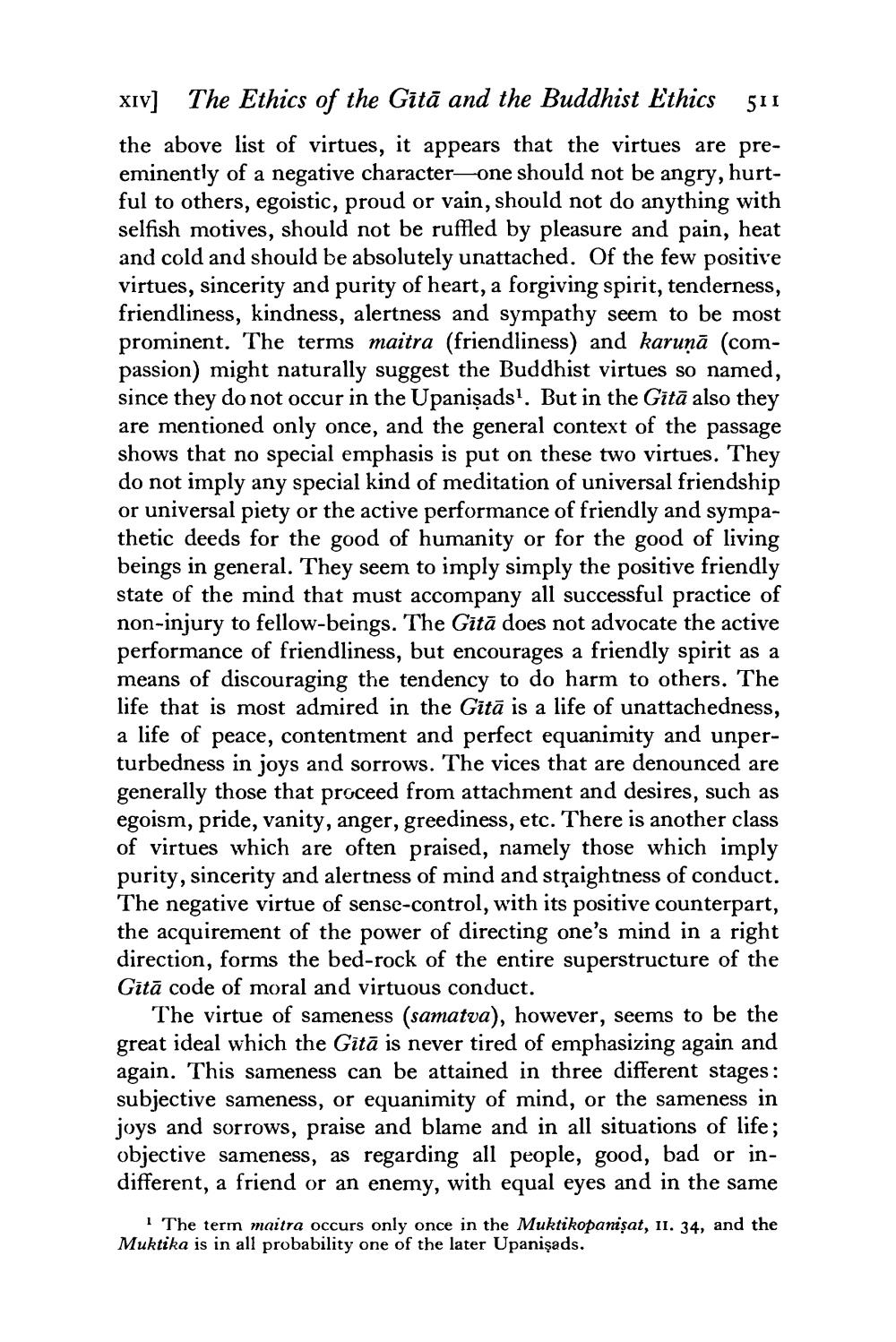________________
XIV] The Ethics of the Gita and the Buddhist Ethics 511
the above list of virtues, it appears that the virtues are preeminently of a negative character-one should not be angry, hurtful to others, egoistic, proud or vain, should not do anything with selfish motives, should not be ruffled by pleasure and pain, heat and cold and should be absolutely unattached. Of the few positive virtues, sincerity and purity of heart, a forgiving spirit, tenderness, friendliness, kindness, alertness and sympathy seem to be most prominent. The terms maitra (friendliness) and karuņā (compassion) might naturally suggest the Buddhist virtues so named, since they do not occur in the Upanisads1. But in the Gitā also they are mentioned only once, and the general context of the passage shows that no special emphasis is put on these two virtues. They do not imply any special kind of meditation of universal friendship or universal piety or the active performance of friendly and sympathetic deeds for the good of humanity or for the good of living beings in general. They seem to imply simply the positive friendly state of the mind that must accompany all successful practice of non-injury to fellow-beings. The Gita does not advocate the active performance of friendliness, but encourages a friendly spirit as a means of discouraging the tendency to do harm to others. The life that is most admired in the Gitā is a life of unattachedness, a life of peace, contentment and perfect equanimity and unperturbedness in joys and sorrows. The vices that are denounced are generally those that proceed from attachment and desires, such as egoism, pride, vanity, anger, greediness, etc. There is another class of virtues which are often praised, namely those which imply purity, sincerity and alertness of mind and straightness of conduct. The negative virtue of sense-control, with its positive counterpart, the acquirement of the power of directing one's mind in a right direction, forms the bed-rock of the entire superstructure of the Gita code of moral and virtuous conduct.
The virtue of sameness (samatva), however, seems to be the great ideal which the Gitā is never tired of emphasizing again and again. This sameness can be attained in three different stages: subjective sameness, or equanimity of mind, or the sameness in joys and sorrows, praise and blame and in all situations of life; objective sameness, as regarding all people, good, bad or indifferent, a friend or an enemy, with equal eyes and in the same
1 The term maitra occurs only once in the Muktikopaniṣat, 11. 34, and the Muktika is in all probability one of the later Upanisads.




